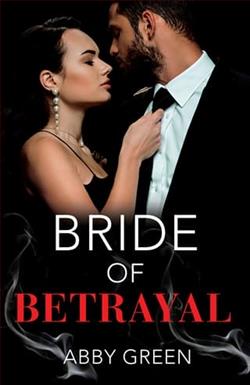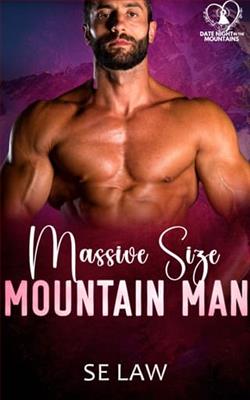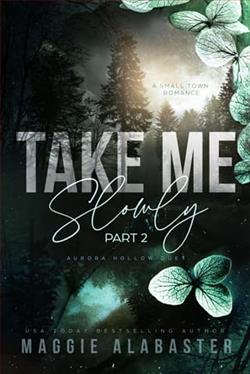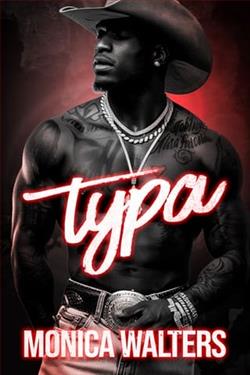Page 93 of The Fireman and the Flirt
“Does Mom know, too?”
Dad nodded yes. Fresh waves of shame and humiliation poured through me.
“I’m sorry,” I said. “I’m so sorry.”
“Why are you sorry?” Dad stroked my thumb, giving me a hint of that security from being in his lap as a kid.
“Because I embarrassed you. Because you’ve probably had people gossiping about me behind your backs, and they probably made assumptions about you and Mom as parents. I brought shame to this house.”
“You brought shame to this house? Are we the royal family? We’re better than them. They’re all a bunch of inbred wackos who’ve never held down a real job.” Dad massaged his palm across my back. “I didn’t care because I knew the story wasn’t true.”
“You did?”
He nodded confidently, a detective who’d seen all the evidence.
“You’d never do something like that. You have a fear of opening your mouth too wide and unhinging your jaw.” A soft chuckle left his lips.
The man was right. In addition to my litany of weird anxieties, I had a fear of eating big pieces of food. I’d once heard my jaw click when taking in a bite of seven-layer cake, and it freaked me out for good. I preferred small pieces of food, small bites, or just sticking with liquids as much as possible.
The gearhead story icked me out when I thought about the oral mechanics. I let out a soft chuckle myself.
“So you’ve known about the story the whole time?”
Dad nodded yes.
“And you didn’t care that people were talking about it?”
“I had some concerned adults ask me if I heard. I told them it wasn’t true. And that was years ago, around when you were graduating. I didn’t say anything because you didn’t seem bothered by it. You went about your life, head held high. I admired how you took it in stride. You were a mature kid. You didn’t need your mom and dad to fix your problem.” Dad scrunched his eyebrows together, finding fault with his statement. “I didn’t realize that you were just very good at hiding your pain. That’s on me. I should’ve been more aware.”
“No. I was very good at hiding things from you and Mom. You both worked hard. You didn’t need to get dragged into my high school bullshit.”
Dad put his hand over mine and squeezed, a steely, papa bear glint in his eye. “We gladly would’ve been dragged in. You didn’t have to fight this battle alone.”
I wanted to be a good son. I wanted to be successful. I wanted to prove the haters wrong. I thought that could only happen if I accomplished it all solo, but like Catherine Zeta-Jones memorably sang inChicago, I simply couldn’t do it alone. Maybe it was okay to need people. It wasn’t weakness. Letting myself be vulnerable for someone else was a sign of strength, a sign that I knew when to let my guard down.
Then, I uttered a sentence out loud that I’d been too afraid to say my whole damn life, but once it came out, the statement was freeing.
“I don’t want to be alone anymore.”
I imagined that was what it was like in AA. Admitting you were an alcoholic was the first step to not being one. Once the words were in the air, they were real and less scary. They weren’t a boogeyman, but rather something that could be conquered.
“You’re not alone, Cary. You never were.” Dad held up a carrot stick. I held up my celery stick. We toasted to me, to us, to family.
29
DEREK
Closings weren’t exciting. It was a shit ton of documents that you had to sign. Make that a metric shit ton. I remembered when Paula and I bought our house, we signed so many documents that our hands cramped. I didn’t know what the hell most of them were, only that at the end, we’d get the keys. For all I knew, we could’ve signed our lives away.
This time, I was nervous. I was going to see Cary for the first time since our fight. I had expected Cary to text me over the Christmas holiday to inform me that Hannah would be taking over, but that never happened. When I asked if we were still good for today, he gave me a thumbs up.
A thumbs up was a frustratingly neutral emoji.
I got to the title office a few minutes early. The closing agent at the title company and the real estate agent representing the homeowner were seated at a large conference in a meeting room that had the generic, vaguely interesting art usually found in hotel rooms. I sat across from the agent and leaned back in the chair, twiddling my thumbs.
“He should be here any minute,” I said of Cary.
The real estate agent was a middle-aged woman with spiky blonde hair, thin glasses, and heavy eye makeup. Beside her was a keychain lanyard of a Catholic school overflowing with keys and smaller keychains. It was a miracle the thing fit in her purse. If a guy tried to put that thing in his pocket, his pants would fall down.















